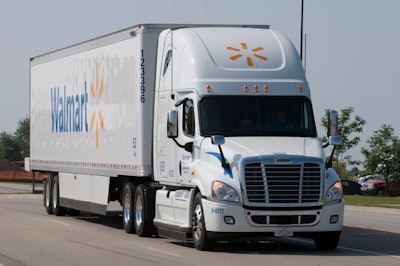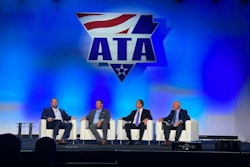
Companies have been trying different ways to offset the impacts of the driver shortage across the trucking industry – from the ages old sign-on bonus to implementing technology that increases uptime and increases automation to improve existing driver satisfaction.
Major retail corporation Walmart recently launched a new approach: recruiting from an existing pool of workers by enticing them with a greater salary than an hourly wage of $17.50.
The company recently completed a pilot of its 12-week truck driver training program that trained 56 new truck drivers it recruited from a group of associates in California and Delaware. It has now expanded that associate-to-driver program to more than 400 stores, distribution centers and other locations with a goal to recruit 400 to 800 drivers for its private fleet from within its existing employee base.
At face value, this benefits Walmart, but the industry as a whole could also see some benefit. After all, it’s creating more CDL holders on a large corporation’s dime.
Granted, I’m sure Walmart has a contract with these employees requiring they work for the retailer for a certain time period, but once that’s up, they could seek employment across the industry.
But more than that, it’s a strategy others – retailers, distributors and even trucking companies – could learn from and implement in some way.
Oftentimes, trucking talent shifts from the cab to the terminal along their career path – from driver to recruiter for example. But trucking companies could consider vice versa, offering a program like Walmart’s to terminal-based employees.
Boeing does this with its employees, recruiting from all areas. A friend of mine who works in accounting at Boeing called me the other day to ask about the process of obtaining a private pilot’s license (I’ve looked into it). Boeing will pay for her to earn her pilot’s license. Color me jealous!
This type of program at a trucking company could open a pipeline for talent; bring on a diesel mechanic assistant – or even an administrative assistant – and train them up to become a driver. It’s enticing because they can go from a minimum-wage salary to triple the earning potential without having to foot the bill. It’s also often easier to attract low-skill workers to these lower-level positions than it is to find drivers, especially considering many trucking companies are based in rural areas that have more labor than jobs.
It's worth considering whether a similar type of program could benefit your company.












